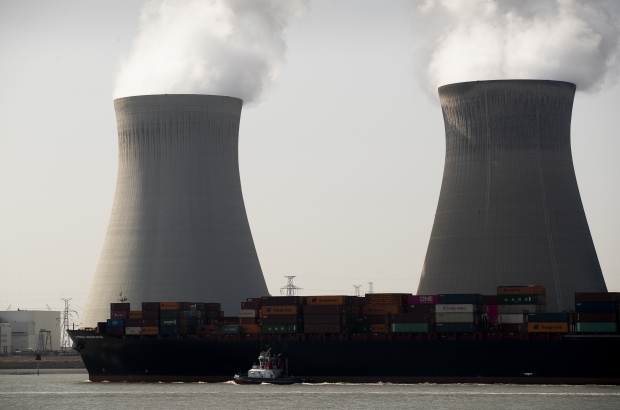- Daily & Weekly newsletters
- Buy & download The Bulletin
- Comment on our articles
Belgium suspends full nuclear exit due to Ukraine war energy concerns
Belgium has decided to extend the use of two of its nuclear reactors by 10 years, effectively postponing the planned nuclear phase-out in light of increasing concerns about energy supply in the wake of the Russian invasion of Ukraine.
The decision came on Friday after an all-day meeting between government officials in the core federal cabinet, Le Soir reports.
“The federal government has decided to take the necessary steps to extend the life of two nuclear reactors by 10 years,” Belgian prime minister Alexander De Croo explained.
“This extension will strengthen our country's independence from fossil fuels in a turbulent geopolitical environment.”
The life of the country’s two newest nuclear reactors, Doel 4 and Tihange 3, will be extended by a decade for a capacity of two gigawatts. At the same time, a series of measures intended to accelerate the transition to renewable energies (offshore wind, hydrogen and solar energy) will be implemented to the tune of €1.16 billion.
With the nuclear exit already a politically divisive issue, the war in Ukraine further increased calls to scale it down or even abandon it altogether in order to ensure an independent energy supply. The skyrocketing price of energy has also been a catalyst, and the war has only further pushed prices to record highs.
Talks with Belgian energy providers
Discussions with Engie, which currently operates the power stations in Brussels, are ongoing.
Minister of energy Tinne Van der Straeten (Groen) is also speaking with the European Commission, which is now staring down a Belgian energy plan significantly different from the one previously communicated.
These changes will have to be discussed with European authorities, but it’s expected that they’ll be sympathetic given the impact of the war in Ukraine on Belgian energy.
While the two reactors will be around for another decade, the gas-fired power plants intended to replace them remain on the agenda. Depending on whether or not the reactors’ shutdown can be fully cancelled (as opposed to having them shut down as scheduled in 2025 and then restart one year later), those plants would bridge any gap in nuclear production.
The Belgian government has not yet received the necessary permits for the gas plants, but the report submitted to the federal government by Elia (the electricity transmission network) indicates that there are alternatives to the rejected sites.
The draft law on the extension of Doel 4 and Tihange 3 will be submitted to the council of ministers for approval by the end of March, as will the draft royal decree on the safety of nuclear installations.
Blowback from neighbouring countries
Belgium's decision has already prompted criticism, not only from a full nuclear phase-out’s strongest proponents, but also from neighbouring Luxembourg.
Luxembourg has lodged a formal letter of complaint with Belgium following Friday’s decision, Luxembourg Times reports.
“Dismayed and stunned by the Belgian government's decision to postpone the nuclear phase-out again,” tweeted Luxembourg’s energy minister Claude Turmes.
“This decision jeopardises the safety of our Luxembourg citizens. We have sent an urgent letter to the Belgian government.”
Luxembourg and Germany have both called for the closure of the nuclear site at Cattenom in eastern France, which lies 20km south of Luxembourg City, citing safety concerns about the plant stemming from “several minor incidents” over the last 10 years.
Photo: Doel nuclear power plant © Belga/Kristof Van Accom

















